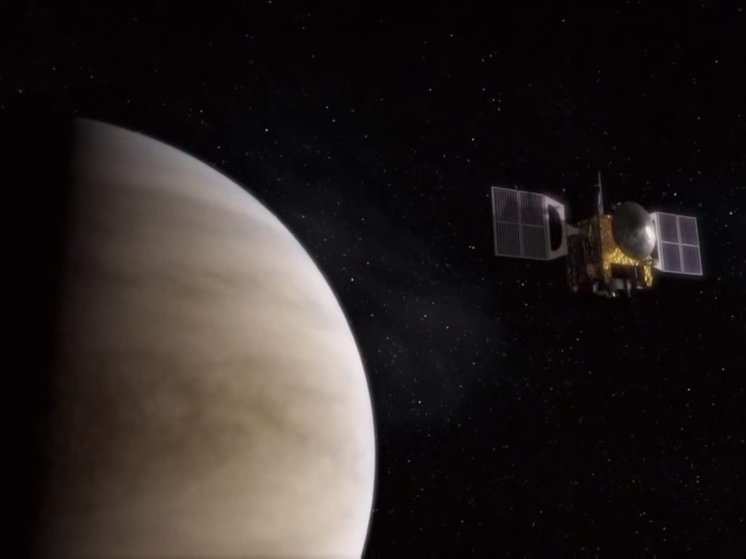Researchers have solved the mystery of the disappearance of water
Scientists believe that Venus was once much more like Earth. How it evolved is a question that experts are looking for an answer to. The answer to it may reveal consequences not only for the future of our planet, but also for the search for life outside the solar system.
 Photo: frame from video
Photo: frame from video
New research points to a process called dissociative recombination that led to hydrogen leaking from Venus into space, causing the planet to lose water much faster than scientists previously thought.
“Venus has 100,000 times less water” than on Earth,” explains planetary scientist Michael Chaffin of the University of Colorado at Boulder, “even though it is almost the same size and mass.”
The parallel study of Venus and Earth raises a number of questions. Besides the similarities in size and mass, both planets appear to be more or less composed of the same rocks, with the same iron core and rocky mantle structure.
But Venus's surface was subject to a strong greenhouse effect, which currently maintains temperatures at an average of 464 degrees Celsius.
Models of Venus could not account for the amount of water the planet must lose when comparing billions of years of formation to Earth.
“Today, if we were to distribute water evenly across the surface of the Earth, it would create a global ocean 3 kilometers deep, called the global equivalent layer. Its thickness on Venus is only 3 centimeters,” the scientists explain.
Researchers led by planetary scientist Erin Kanga from the University of California at Boulder tried to find the discrepancy by performing computer simulations of processes in the atmosphere of Venus. And their results pointed to the recombination of a molecule called HCO+, which had been overlooked for 50 years.
To be clear, it is a positive ion made up of hydrogen, carbon and oxygen, formed by combining carbon dioxide and water and losing negatively charged electrons. The team's research shows that when electrons recombine with a molecule, hydrogen is released and floats off into space. And without hydrogen, water can no longer form. This mechanism could account for nearly twice as much water loss as previously estimated, providing a clear solution to the difference between Earth's and Venus's water.
“There’s a slight catch. The model suggests that there is quite a lot of HCO+ in the atmosphere of Venus, and to date we have not detected any. But this may be due to the fact that we did not think to look for it, so none of the probes sent to study the smaller planet could detect it,” says the planetary scientist.
Kangi adds, then “new The planned missions will leverage decades of collective experience and growing interest in Venus to study the extreme characteristics of planetary atmospheres, evolution and habitability.»























































Свежие комментарии